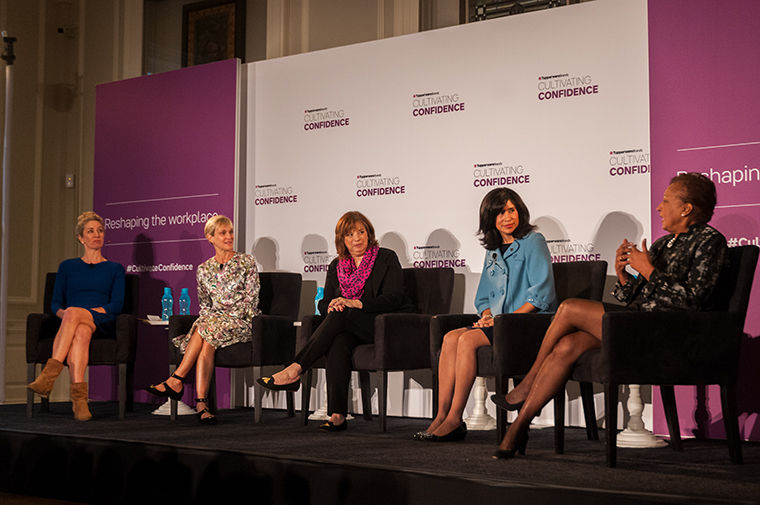Reshaping the workplace with confident women
October 16, 2017
Elinor Steele used her confidence to persuade her way to acceptance into a graduate program at Crummer Graduate School of Business at Rollins College even though she lacked a bachelor’s degree.
Steele said if it was not for Tupperware Brands Corp. CEO Rick Goings’ belief and confidence in her, she would not have had the confidence to ask for admission.
Steele, who is now the vice president of Global Communications and Women’s Initiatives at Tupperware, participated in the company’s Cultivating Confidence: Reshaping the Workplace Oct. 12 panel at the Chicago History Museum, 1601 N. Clark St.
Moderated by Chicago Tribune Columnist Heidi Stevens, the panel included Gerri Kahnweiler, the co-founder of InvestHER Ventures, a company which provides funding opportunities for tech companies; Iliana Mora, CEO of Women Employed, a nonprofit that advocates for education opportunities; and Joyce Roché, former president and CEO of Girls Incorporated, a nonprofit that mentors and educates young girls and women and author of the book “The Empress Has No Clothes: Conquering Self-Doubt to Embrace Success,” a memoir.
“From a young [age, women] begin to gain those confidence skills,” Mora said. “You begin to go through life having obstacles every step of the way, and instilling confidence in girls at a young age and throughout their life as they enter womanhood is important.”
Confidence helped Mora overcome many challenges, she said. When she returned to work after having a baby, she struggled with her child waking up throughout the night before early morning board meetings.
The panel discussed the intersectionality of race and gender, and Roché recalled a time when she was working at Avon Products, a beauty company. She pointed out a diversity issue in a controversial advertisement that would have been published and offended people had she not been there.
“Inclusion is not about just having people check a box and say, ‘I’ve got a woman, I’ve got an African-American, I’ve got a Latina,’” Roché said. “It is about the concept of valuing difference and understanding it is worth bringing in that diversity because you’re going to get a diverse perception.”
Ishena Robinson, marketing communications coordinator at Women Employed, attended the panel not only to support her boss, Mora, but also to learn how to overcome the barriers and challenges working women of color face.
“When we are talking about women in the workplace, we also have to understand that women of color have to deal with additional barriers that may not always be recognized if we are just talking about the mainstream challenges of women,” Robinson said.
Stereotypes are a common barrier against gender equality in the workforce, Stevens said, pointing to the 79-cent wage gap between genders and also acknowledging more women graduate from college than men.
Women commonly doubt they are smart enough or good enough for traditionally gendered jobs, Roché said.
It would be helpful if corporations assisted women in climbing the career ladder and placed them in non-stereotypical situations, Mora added.
Many corporate women get benefits such as sick time and consider them as basic benefits, Mora said. However, low-income workers, of which two-thirds are women, do not receive basic benefits and have to choose between going to work while sick or staying at home and losing hours, she added.
“As a society, we need to fully acknowledge that all women, no matter where they are on the economic ladder or in their career, need to make progress,” Mora said.








